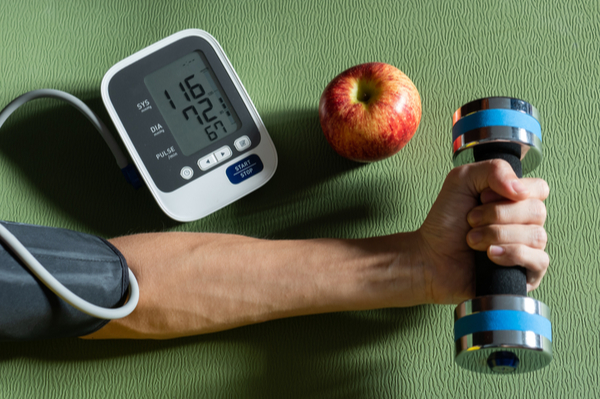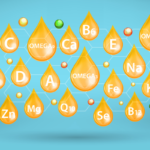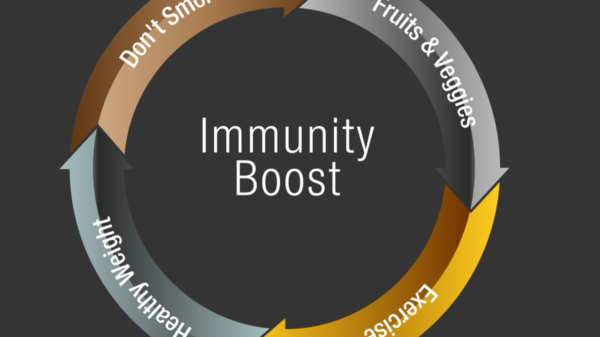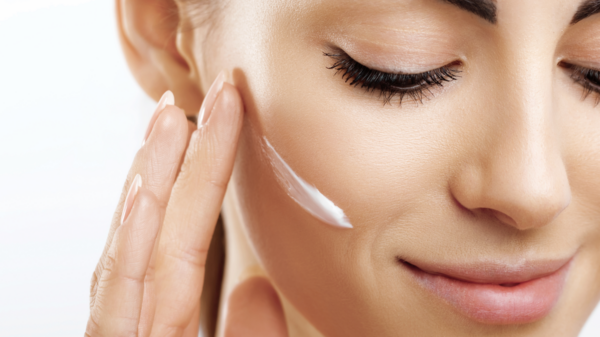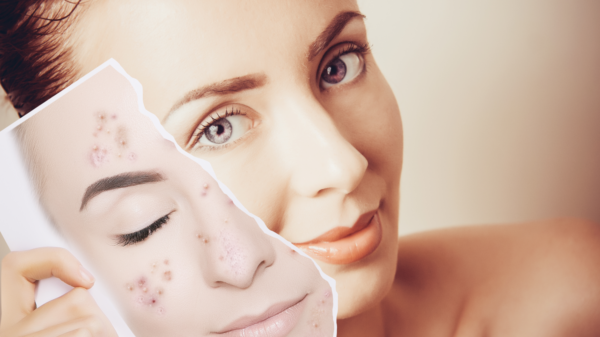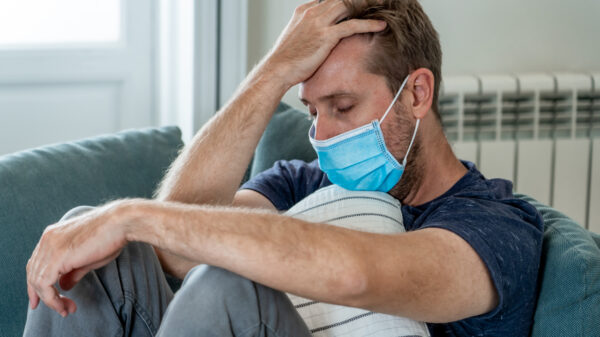Hypertension is also known as High Blood Pressure. It can cause many severe diseases and complications like heart attack, heart stroke and ultimately lead to the death of a person.
In high blood pressure, blood exerts pressure on the walls of blood vessels, and it is hard for the heart to function properly in this condition. According to research, half of the adults have problems with high blood pressure globally.
Hypertension is the initial stage of severe cardiovascular diseases like an aneurysm. Prevention and treatment of hypertension are essential for healthcare.
Diagnosis of Hypertension or High Blood Pressure
There are no proper symptoms of high blood pressure. You can only find by checking blood pressure on a regular basis by yourself with blood pressure apparatus or from a healthcare professional.
- Normal Blood pressure: Systolic (Less than 120) and Diastolic (Less than 80)
- High Blood pressure: Systolic (Higher than 140) and Diastolic (Higher than 90)
Who is at risk of hypertension?
Anyone can get high blood pressure, but there are some factors that can increase the chances of getting hypertension.
- Age
Hypertension rises with age.
- Ethnicity
It is more common in Africans and Americans.
- Weight
Obese or overweight have more chances of getting hypertension.
- Lifestyle
People who have bad habits and a sedentary lifestyle can get high blood pressure.
- Family History
A family history of hypertension can increase the chances of getting high blood pressure.
Treatment and Medications
Medications used to treat hypertension are:
Diuretics
Sodium and water are removed from your body with the use of Diuretics, which are also known as water pills. Usually, high blood pressure is treated using these medications firstly.
Angiotensin-converting enzyme (ACE) inhibitors
Medications that include lisinopril (Prinivil, Zestril), captopril, benazepril (Lotensin), and a few others are those which inhibit the production of a natural chemical that otherwise constrict the blood vessels.
Calcium channel blockers
The muscles present in your blood vessels are relaxed using the medications like amlodipine (Norvasc), diltiazem (Cardizem, TIazac), and a few others. A few decrease your heart rate.
ACE inhibitors alone are not as effective as when used with calcium channel blockers, especially in older people and individuals of African heritage.
How can I prevent high blood pressure?
1. Lose extra pounds and watch your waistline
Weight usually increases with an increase in blood pressure. Your breathing is also more irregular during sleep (sleep apnea) due to being overweight that works to increase your blood pressure more.
Maintaining blood pressure is effectively carried out through weight loss, which is the most effective lifestyle change. It helps your blood pressure even if you lose a few pounds or a small amount of weight, even if obese.
After every kilogram (about 2.2 pounds) of weight that you lose, 1 millimeter of mercury (mm Hg) is minimized in your blood pressure.
You also be careful about your waistline besides worrying about your pounds. Your blood pressure risk is greatly increased with an increase in your waistline.
2. Exercise regularly
People with high blood pressure can perform various exercises to maintain their blood pressure, to about 150 minutes per week, or for most days, 30 minutes of work helps to reduce 5 to 8 mm Hg of your blood pressure.
However, you have to be vigilant in your exercises; inconsistency can lead to a rise in blood pressure too. If you have high blood pressure, exercise helps to prevent you from developing hypertension too.
People already dealing with hypertension can bring their blood pressures to normal by performing exercise regularly. A variety of aerobics exercises that can be used to lower blood pressure include cycling, walking, jogging, swimming, or even dancing.
High-intensity interval training, which means exercising vigorously with short periods of lighter activity, can be employed for blood pressure control.
Training for strength also works to lower your blood pressure. Exercises related to strength training should be done at least twice a week. Form an exercise program by consulting with your doctor.
3. Eat a healthy diet
Your blood pressure can be controlled by lowering it to about 11 mm Hg if you take a healthy diet containing different fruits, whole grains, low-fat dairy products, skimps on saturated fat and cholesterol if you are suffering from high blood pressure.
This plan regarding eating is known as Dietary Approaches to Stop Hypertension (DASH) diet. Altering your diet is not as easy as you want it to bee, but following these tips can help you in your healthy diet:
- Keep a food diary by noting down your eating habits, if for just a week, can show you your surprising eating habits.
- Try to take note of what you eat, in what amount, at what time, and why.
- Consider boosting potassium: Taking potassium helps to reduce the effects of sodium on blood pressure. Instead of supplements, taking good food, like fruits and vegetables, can help you provide a good source of potassium.
- Consult your doctor on the level of potassium considered best for you.
- Be a smart shopper. While shopping, read what you are buying, and try to stand with your new eating plan if you are eating out.
4. Reduce sodium in your diet
Your heart health is greatly and positively affected by reducing your sodium intake, which also lowers your blood pressure to 5 to 6 mm Hg if your blood pressure is high. Between different groups of people, the effect of sodium on blood pressure is different.
Sodium should be taken in only 2,300 milligrams (mg) per day or in lower amounts. For adults, sodium intake of about 1,500 mg per day or lower is considered best.
Lowering your sodium can be attained by following the tips mentioned below:
- Read food labels. Take note of which products contain more sodium, and try consuming low-sodium alternatives of food and products.
- Eat fewer processed foods. Sodium is present in low amounts in different foods. Sodium is added to processing mostly.
- Don’t add salt. A teaspoon of salt contains about 2,300 mg of sodium. Food can be enhanced with flavors by using spices or herbs.
- Ease into it. If it is hard for you to suddenly lower sodium consumption through your diet, then it is best to decrease slowly. Your taste will adjust with time.
5. Limit the amount of alcohol you drink
Alcohol is thought of as good and bad both for health. Alcohol consumption in moderation, like one drink per day for women, or two drinks per day for men, can help to reduce your blood pressure by up to 4 mm Hg.
A single drink equals about five ounces of wine, 12 ounces of beer, or 1.5 ounces of 80-proof liquor. However, drinking too much can lose the beneficial effects supplied by alcohol. Blood pressure by a few points is raised if you drink alcohol with no control.
The efficacy of blood pressure medications is also compromised due to this.
6. Quit smoking
Your blood pressure is increased when you smoke for a little while after ending. By avoiding or stopping, your blood pressure is maintained. Your health and risk of heart disease are lowered considerably by avoiding smoking or quitting in time.
People who keep on smoking are more likely to live less than those who quit smoking.
7. Cut back on caffeine
The effect of caffeine on blood pressure is still under discussion. People who do not take caffeine regularly can be affected by increasing blood pressure up to 10 mm Hg. But, those who consume it regularly have little or no effects on their blood pressure.
Blood pressure rise may be permanent, even though the effects of caffeine on blood pressure are still doubtful. But to see how caffeine affects you, try noting down your blood pressure after 30 minutes of drinking a caffeinated beverage.
You are considered sensitive to blood pressure; if after consuming caffeine, your blood pressure raises up to 5 to 10 mm Hg. After seeing this, try communicating with your doctor regarding the effect of caffeine.
8. Reduce your stress
High blood pressure is negatively impacted due to chronic stress. But still, more study is required to show the effects of chronic stress on blood pressure. If your answer to stress is to eat unhealthily, smoke, or drink alcohol, then your blood pressure is likely to stay high.
Try finding out factors that cause an increase in your stress levels like work, family, finances, or any disease.
After finding out the cause of your stress, try coming up with solutions to help alleviate it. However, if your stress factors cannot be removed, try dealing with them healthily. Try following these:
- Change your expectations. Like, try planning out your activities and note down what’s important. It’s your right to say no and to not stress yourself by overworking. It’s okay if you cannot control everything; just try to react positively.
- Focus on issues you can control and make plans to solve them. If you are facing problems at work, communicate them with your manager. Try settling any issues related to your children or spouse’s health.
- Avoid stress triggers. Stay away from any triggers. For example, if you are disturbed by rush-hour traffic, try leaving before the designated time or consider using public transportation. Stay away from people who are toxic to you and a reason for stress.
- Make time to relax and to do activities you enjoy. Make time for yourself to stay quiet and take a deep breath. Try to enjoy your time with your favorite hobbies like cooking, walking, or volunteering.
- Practice gratitude. Stress is alleviated if you show appreciation towards others.
9. Monitor your blood pressure at home
Monitoring blood pressure at home can help you to stay vigilant, altering any lifestyle habits, or informs you and your doctor regarding any health complications. There is no prescription required to attain blood pressure monitors.
Ask your doctor related to home monitoring before you begin. Blood pressure is also controlled with regular visits to the doctor. Ask your doctor regarding monitoring of blood pressure, if it’s controlled.
You may be asked to check daily or sometimes less often. If any change regarding your medications occurs, you may be asked to monitor blood pressure for the two weeks of starting a new treatment and a week before the follow-up visit.
10. Get support
Your health is majorly impacted by supportive family and friends. They will advise you to stay healthy, may help you go to a doctor’s clinic, or be your partner in an exercise program for lowering blood pressure.
However, if you still feel like you need more support, be a part of a support group. You may find yourself with people who can give you a morale boost or may offer advice on how to care for your condition.

